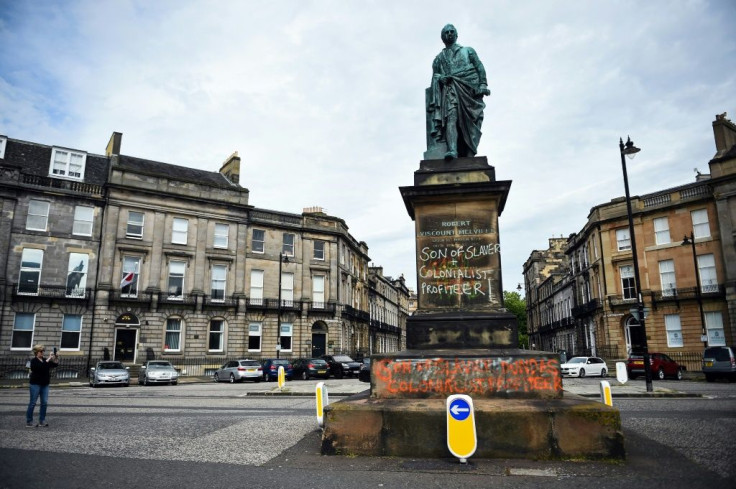UK PM Defends History In Statue Row
Prime Minister Boris Johnson on Friday said a wave of anti-racism protests across Britain had been "hijacked by extremists", as fears mounted about clashes between activists and far-right groups.
In London, authorities boarded up several statues, including of World War II leader Winston Churchill, after previous damage and with further demonstrations planned.
Mayor Sadiq Khan said the monuments, as well as the Cenotaph war memorial, were being protected against the risk of "disorder, vandalism and violence".
Statues and monuments to figures involved in Britain's colonial past and the international slave trade have become increasing targets for activists over the last week.
Their targeting has prompted calls for a re-examination of the country's historical legacy.
On Sunday, crowds in southwest England toppled a statue to a local slave trader and philanthropist, Edward Colston, and threw it into the harbour, prompting calls for others to be removed.
But while recognising the "legitimate desire to protest against discrimination", Johnson said in statement issued on Twitter: "We cannot now try to edit or censor our past.
"We cannot pretend to have a different history. The statues in our cities and towns were put up by previous generations.
"They had different perspectives, different understandings of right and wrong. But those statues teach us about our past, with all its faults.
"To tear them down would be to lie about our history, and impoverish the education of generations to come."
The protests were sparked by the death during a US police arrest of George Floyd, an unarmed African-American, which have triggered outrage around the world.
Johnson acknowledged the anger of black and minority ethnic communities and said there had been "huge" strides in tackling discrimination in Britain.
But after clashes marred largely peaceful demonstrations in London, he added: "It is clear that the protests have been sadly hijacked by extremists intent on violence.
"The attacks on the police and indiscriminate acts of violence which we have witnessed over the last week are intolerable and they are abhorrent."

"The only responsible course of action is to stay away from these protests," he said.
With tensions running high, the Black Lives Matter group called off a demonstration planned for Saturday in London's Hyde Park after far-right groups said they would also protest.
"We want the protests to be a safe space for people to attend however we don't think it'll be possible with people like them present," BLM London said on Instagram.
However, it said a protest for Friday lunchtime would go ahead, when the group will unveil a billboard to the victims of what it called "state and racist violence".
Mayor Khan backed protesters, saying Floyd's death "must be a catalyst for systemic, lasting change to tackle the racism and inequalities that black people still face today".
But he urged people to stay home this weekend, both because of the risk of spreading the coronavirus and of violence.
"Extreme far-right groups who advocate hatred and division are planning counter-protests, which means that the risk of disorder is high," the London mayor said.
Churchill's statue was vandalised last weekend by campaigners who say his policies led to the deaths of millions of people during famine in the Indian state of Bengal in 1943.
Johnson, who has written a biography of the wartime leader, said it was "absurd and shameful" his memorial would be targeted, as he fought against fascism and tyranny.
"Yes, he sometimes expressed opinions that were and are unacceptable to us today, but he was a hero, and he fully deserves his memorial," the premier wrote.
Activists linked to the Stop Trump Coalition have compiled a crowd-sourced list of statues and monuments across Britain that they say "celebrate slavery and racism".
The list includes figures such as the 16th century explorer Francis Drake, and Robert Clive, once described as an "unstable sociopath" who managed the East India Company in British-ruled India.
London's Guy's and St Thomas' hospitals announced it would remove two statues -- including to its benefactor Thomas Guy -- because of their links to slavery.
© Copyright AFP 2024. All rights reserved.





















